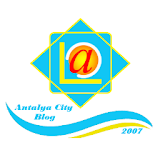Introduction
Countries are different as size of population, land, capacity of economy and type of governance, etc. Therefore, their trade preferences are also different. Some countries prefer to open their boundaries to trade, and others can prefer less trade according to their interests from trade. In addition to this, countries` trade policies are very important. There are two main trade policies. Namely, factor and sector model. In this essay, Republic of Turkey is selected as the model country. For this reason, interests of Turkey in the World Trade Organization (WTO) will examine in detailed. Moreover, the place of Turkey in the WTO and world trade system, her trade policies will be mentioned and the economic and trade capacity and main exporting products of Turkey will be also mentioned under a separate title in the article. Besides this, it will ensure some statistical information about the country`s economic development since 2000. Actually, it will show the success story of Turkey on trade. Alternatively, Turkey is also a part of the European Union`s custom union. This means that Turkey is the part of regional trade arrangements which is the greatest challenge for the WTO. Therefore, this essay will examine Turkey`s interest from both trade arrangements. Finally, in the conclusion section of the article, it will ensure overview of the analysis, briefly, and it will try to show the gains and losses of The Republic of Turkey from each trade arrangements; WTO and the EU custom union.
Importance of Trade for Turkey and Her Economic and Trade CapacityRepublic of Turkey is a country where is between Europe and Asia like a bridge between two continents. Her location is very influential on her trade policy. Due to her location, Turkey cannot be closed country, economically. Especially, after 1980s, Turkey started to be more liberalized and integrated with the world. Privatization and the importance of trade have risen and as a result of this, Turkey is now in 20 major economies of the world (G20), the European Union Custom Union, The Economic Cooperation Organization (ECO), Organization of the Black Sea Economic Cooperation, etc. In addition to this, Turkey was a member of the General Agreement on Tariffs and Trade (GATT) and she became a member of WTO when it was established. Furthermore, she is among the world`s leading producers of textiles, agricultural products, construction materials, consumer electronics, home appliances and transportation equipment such as ships, motor vehicles, etc. Turkey is also one of the founding members of the Organisation for Economic Co-operation and Development (OECD). `Significant improvements in such a short period of time have registered Turkey on the world economic scale as an exceptional emerging economy, the 15th largest economy in the world and the 6th largest economy when compared with the 27 EU countries, according to GDP figures (at PPP) in 2008`(Republic of Turkey Prime Ministry Investment Support and Promotion Agency, 2009). Growing of Turkey`s economic capacity puts her stronger position in the WTO, because countries can state themselves strongly when they have very strong and healthy economy. If people look the statistics of economic development of Turkey since the beginning of 2000s, they will realize that Turkey`s economy started to be stronger. `Turkey is an emerging market economy. The visible improvements in the economy have also boosted foreign trade, while exports reached USD 132 billion by the end of 2008, up from USD 36 billion in 2002. Similarly, tourism revenues, which were around USD 8.5 billion in 2002, reached USD 22 billion in 2008` (Republic of Turkey Prime Ministry Investment Support and Promotion Agency, 2009). With reference to UNCTAD`s survey Turkey`s institutionalized economy fueled by USD 18.2 billion of FDI in 2008 and ranked the 15th most attractive FDI destination for 2008 -2010. Another survey which belongs to IMF-WEO says us that 15th largest economy in the world and 6th largest economy compared with the 27 EU countries in 2008. Turkey has an important position and she will get more important position in WTO in the near future with her trade and economic capacity in this global world.
Turkey's Interests in the WTO
`Turkey has been a member of WTO since 26 March 1995` (WTO, 2009). Turkey is one of the leading producers of textiles and agricultural products. And WTO put some arrangements for trading of textile, clothing and agricultural products. For this reason, the Textiles Monitoring Body (TMB) was established and Agreement on Textiles and Clothing (ATC) was signed with related countries. `Since 1 January 1995, international textiles and clothing trade has been going through fundamental change under the 10-year transitional programme of the WTO's Agreement on Textiles and Clothing (ATC). Before the Agreement took effect, a large portion of textiles and clothing exports from developing countries to the industrial countries was subject to quotas under a special regime outside normal GATT rules` (United Nations, 2003).
There are two sorts of trade policy such as factor and sector model. When we look at Turkey`s factor model policy on export, we see mainly labor as a factor of production, because Turkey mostly exports agricultural products and textile. In Turkey, the price of labor is cheaper than Europe so she requires more capital than labor. When Turkey exports agricultural products and clothing, she imports high technology products such as machinery and mechanical appliances, Pharmaceutical Products, Aircraft Spacecraft, etc. Also, Turkey imports natural gas from Russia but she deal in Europe, generally. Actually, there is a balance of trade between Turkey and Europe, because Turkey needs capital based products and Europe needs labor based products. However, the biggest danger for Turkey on exporting textile is China, because the price of labor is cheaper than Turkey in China. They are rival on textile and clothing so China always tries to reject Turkey`s proposals on the issue of trading of textile in WTO conferences. Turkey`s agriculture sector is very big. She is not only self-sufficient in food, but one of the biggest food exporters of the world. Most of agricultural products are produced in Turkey. For instance, she is the world`s largest producer of hazelnut cherry, apricot, fig, pomegranate and quince. She also produces watermelon, cucumber, tomato, green pepper, onion, olive, sugar beet, cotton, tobacco, tea and apple, orange, etc. As a result of this, trading agricultural products is also important for Turkey. The WTO`s tariff policy on agriculture can be strict but Turkey has to adapt them to export her agricultural products. On the other hand, the trade policy is changing in Turkey, because the importance of agriculture is decreasing and the sector moves from agriculture to industrial and service sector.
Turkey: Between the EU Customs Union and WTO
Some scholars see regional trade arrangements as the greatest challenge for WTO. These regional trade arrangements can be free – trade area and customs union. Turkey is also a part of one of the custom unions which is the EU custom union. According to WTO`s general statements or rules; member countries cannot provide special advantages for other states, because; it has nondiscrimination principle which is one of the most important principles of the WTO. Contrary to popular belief, the WTO did not oppose Turkey`s membership of the EU Customs Union and the WTO published a report about the EU Custom Union membership of Turkey. According to this report; `Turkey's far-reaching structural and legislative reforms, undertaken within the framework of the customs union with the European Union, have led to improved market access and a more secure trading environment for all investors and traders` (WTO, 1998). In Turkey, some people argue that the EU Custom Union is not beneficial for Turkey, because they think that foreign firms and their products occupy the market and it harms domestic firms and production, Maybe, they can be right, because there will be no restriction for foreign firms to enter the market but Turkish firms and their products can also enter the European market at the same time. `The report states, however, that the customs union also obliged Turkey to introduce some new external trade measures to achieve harmonization with those of the EU, particularly concerning the adoption of the EU textile and clothing regime. A number of goods such as certain telecommunications equipment, machinery, motor vehicles and chemicals remain subject to prior import licensing` (WTO, 2008).
On the other hand, agriculture is excluded from the EU customs union, because; people can see that government intervention on this sector of production in Turkey. For developing countries, agriculture is very important, and these countries generally export agricultural products so the WTO has some strict arrangements on agriculture. It is also important for Turkey as one of the developing countries in the world.
ConclusionTo sum up, the WTO is important organization for all states. Maybe, some states refuse to trade but most of states open their borders to trade, because trading is one of the important things to get benefit economically for states. If you produce something, you should sell it to get benefit so states should do same thing. They produce and sell to abroad. Furthermore, states need some goods therefore they should import those goods from abroad. Because of this, I tried to show importance of trade for Turkey and her economic and trade capacity with formal statistics by important organizations, such as the World Trade Organization and the United Nations. Then, I tried to analyze the interests of Turkey in the WTO. Moreover, the place of Turkey in the WTO and world trade system, her trade policies was mentioned and the main exporting products of Turkey were also mentioned under a separate title in the article. Turkey is the part of regional trade arrangements which is the greatest challenge for the WTO. Therefore, this article examined Turkey`s interest from both trade arrangements, finally.
Personally I believe that, we need the WTO to better trade policy for all states and order in trade between states. Turkey is developing country and WTO`s arrangements are very important for her, because; Turkey need trade to develop herself economically and reach the developed states` level on technology, economy and politics. Turkey`s the EU Custom Union membership is also important for her EU full membership. The EU Custom Union is one of the important stages for EU membership. Turkey should show her harmony to Europe so she can show this through being a part of the customs union of the EU. People often claim that, regional trade arrangements are the biggest challenge for the WTO, and Turkey is a part of both the EU customs union which is a regional trade organization and the WTO. But in my view, both of them do not clash for some areas and for some countries. Turkey can gain benefit from both organization and both of them can help Turkey for having stronger and healthier economy through trade arrangements.
Isa Burak GONCA
BIBLIOGRAPHY
Republic of Turkey Prime Ministry Investment Support and Promotion Agency (2009) Economic Outlook, Available online at:
http://www.invest.gov.tr/en-US/turkey/factsandfigures/Pages/Economy.aspx [Accessed on
January 4, 2010].
United Nations (2003) United Nation Conference on Trade and Development, Dispute
Settlement, Available online at:
http://www.unctad.org/en/docs/edmmisc232add21_en.pdf [Accessed on January 3, 2010].
WTO (1998) Trade Policy Reviews: First Press Release, Secretariat and Government Summaries, Turkey October 1998, Available online at:
http://www.wto.org/english/tratop_E/tpr_e/tp83_e.htm [Accessed on January 5, 2010].
WTO (2009) Member Information, Turkey and the WTO, Available online at:
http://www.wto.org/english/thewto_e/countries_e/turkey_e.htm [Accessed on January 3, 2010].
WTO (2009) Textiles, Available online at:
http://www.wto.org/english/tratop_e/texti_e/texti_e.htm [Accessed on January 4, 2010].
























